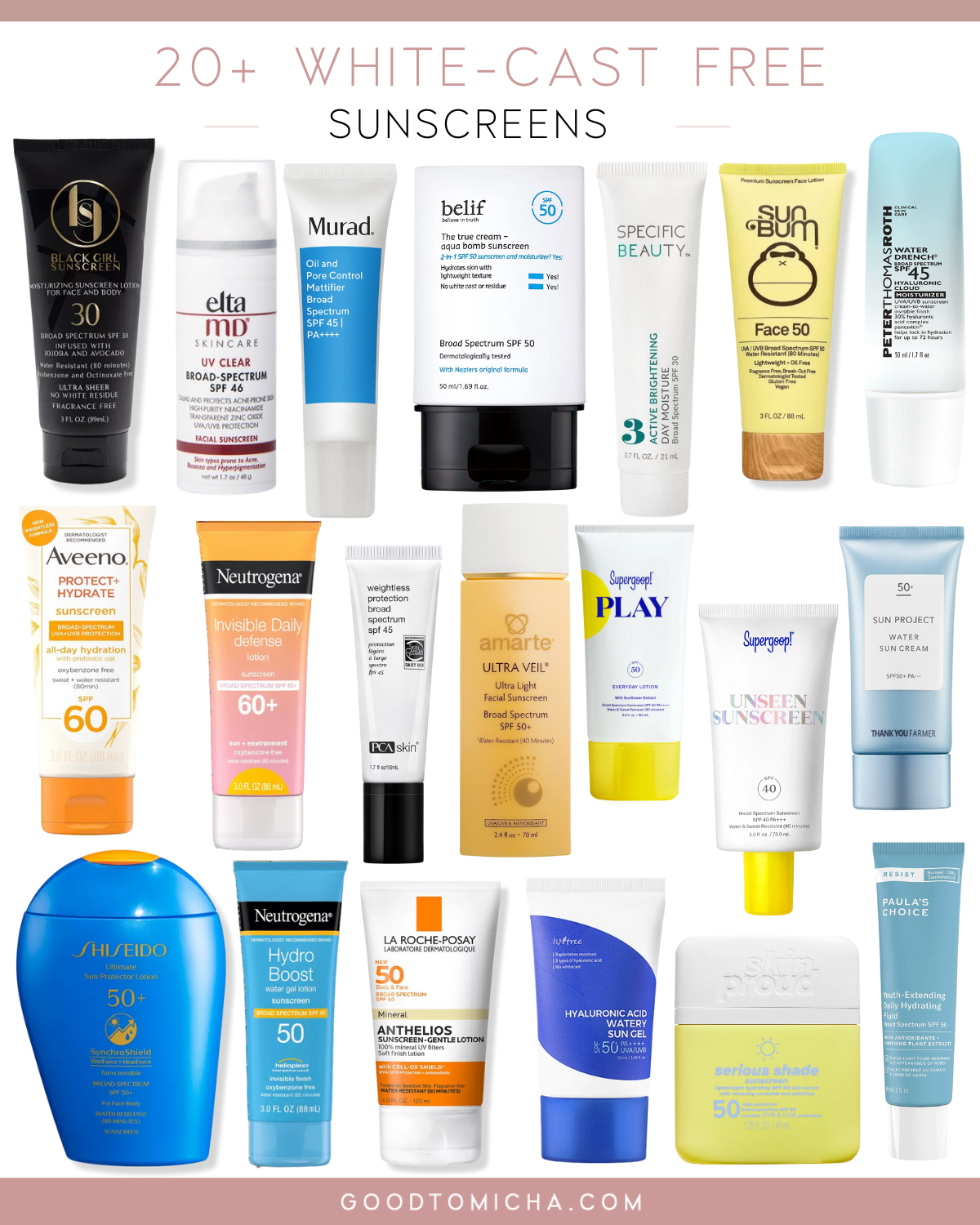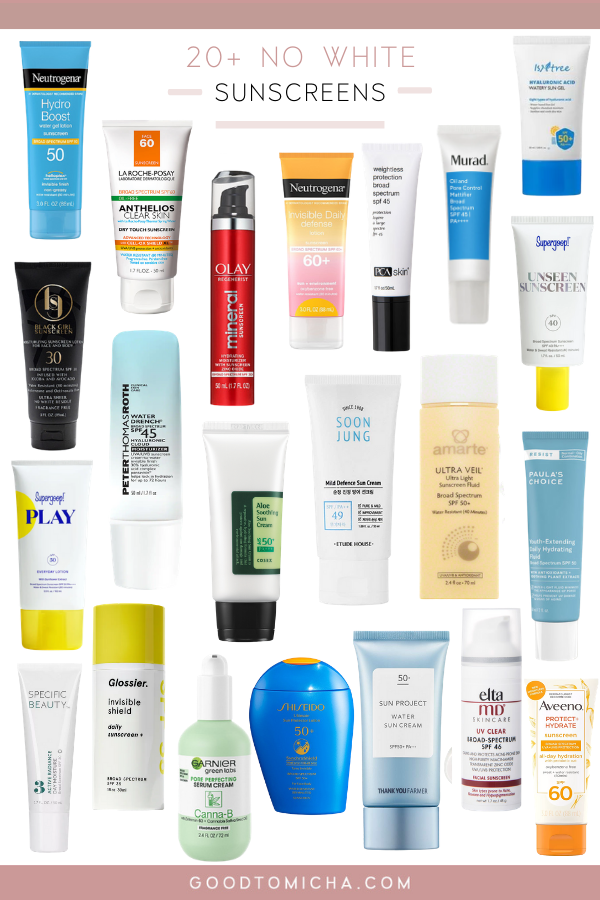When it comes to sunscreen, finding the best no white cast sunscreen can make all the difference in your daily skincare routine. Many people avoid using sunscreen because of the dreaded white cast it leaves behind, making them look ashy or pale. However, advancements in skincare technology have made it possible to find sunscreens that provide effective protection without compromising aesthetics. In this article, we’ll explore the best no white cast sunscreen options to help you make an informed decision for your skin.
Protecting your skin from harmful UV rays is crucial, not only for preventing sunburn but also for reducing the risk of premature aging and skin cancer. However, not all sunscreens are created equal, and some may leave an unpleasant white film on the skin, which can be particularly frustrating for individuals with darker skin tones. That’s why choosing the right sunscreen is essential.
In this comprehensive guide, we’ll delve into the science behind sunscreens, discuss the best no white cast sunscreen options available, and provide you with tips to select the perfect product for your skin type. Whether you have sensitive skin, oily skin, or are simply looking for a lightweight formula, we’ve got you covered.
Read also:April 6th Star Sign Unveiling The Secrets Of Aries Zodiac
Why No White Cast Sunscreen Matters
White cast is the chalky residue that some sunscreens leave on the skin after application. It’s often caused by physical blockers like zinc oxide and titanium dioxide, which reflect UV rays. While these ingredients are highly effective at protecting the skin, they can also leave an unflattering white film, especially on darker skin tones. This issue has led many people to seek out sunscreens that provide invisible protection.
Understanding Sunscreen Formulations
Sunscreens come in two main types: chemical and physical. Chemical sunscreens absorb UV rays, while physical sunscreens reflect them. Both types can be formulated to avoid leaving a white cast, but it depends on the ingredients and formulation:
- Chemical Sunscreens: These sunscreens use active ingredients like avobenzone and octinoxate, which absorb UV rays. They tend to blend into the skin more easily and are less likely to leave a white cast.
- Physical Sunscreens: Also known as mineral sunscreens, these use zinc oxide and titanium dioxide to physically block UV rays. Traditionally, they were associated with white cast, but modern formulations have improved significantly.
The Impact on Different Skin Tones
The issue of white cast is particularly relevant for individuals with medium to deep skin tones. For these skin types, finding a sunscreen that blends seamlessly is crucial for maintaining a natural appearance. Fortunately, many brands now offer formulations specifically designed to cater to diverse skin tones.
Top 10 Best No White Cast Sunscreen Options
1. EltaMD UV Clear Broad-Spectrum SPF 46
This popular sunscreen is beloved for its lightweight formula and ability to blend seamlessly into all skin tones. It contains zinc oxide as the active ingredient and is suitable for acne-prone and sensitive skin.
2. Supergoop! Unseen Sunscreen SPF 40
Supergoop! Unseen Sunscreen is a favorite among makeup enthusiasts. It’s a tinted sunscreen that provides invisible protection and doubles as a primer, making it perfect for those who want a flawless complexion.
3. Black Girl Sunscreen SPF 30
Created specifically for darker skin tones, Black Girl Sunscreen offers broad-spectrum protection without leaving a white cast. Its moisturizing formula is perfect for dry skin.
Read also:What Does Wingspan Mean In Basketball A Comprehensive Guide
4. La Roche-Posay Anthelios Clear Skin Dry Touch Sunscreen SPF 60
This sunscreen is designed for oily and acne-prone skin. It provides matte coverage and is oil-free, making it an excellent choice for those who want to avoid greasiness.
5. Coola Mineral Face Sunscreen SPF 30
Coola’s mineral sunscreen is formulated with antioxidant-rich ingredients like organic aloe vera and cucumber extract. It’s gentle on the skin and leaves no white cast.
6. Neutrogena Sheer Zinc Dry-Touch Sunscreen SPF 50
Neutrogena’s zinc-based sunscreen is lightweight and non-greasy. It’s perfect for everyday use and provides broad-spectrum protection without leaving a white cast.
7. ISDIN Eryfotona Actinica Ultra-Light Emulsion SPF 50+
ISDIN’s Actinica is a high-performance sunscreen designed for post-procedure skin. It’s oil-free, non-comedogenic, and offers invisible protection.
8. Drunk Elephant Umbra Sheer Physical Daily Defense SPF 30
Drunk Elephant’s sunscreen is formulated with zinc oxide and titanium dioxide, making it a great option for those who prefer mineral sunscreens. It blends effortlessly into the skin.
9. CeraVe Hydrating Sunscreen SPF 50
CeraVe’s hydrating sunscreen is perfect for dry or sensitive skin. It contains hyaluronic acid and ceramides to moisturize while providing broad-spectrum protection.
10. COOLA Full Spectrum 360° Mineral Sunscreen SPF 50
COOLA’s mineral sunscreen offers full-spectrum protection against UVA, UVB, and infrared rays. It’s lightweight and leaves no white cast, making it suitable for all skin types.
Factors to Consider When Choosing a Sunscreen
1. Skin Type
Understanding your skin type is essential when selecting a sunscreen. Here are some considerations:
- Oily Skin: Look for oil-free, matte-finish sunscreens.
- Dry Skin: Choose hydrating formulas with moisturizing ingredients.
- Sensitive Skin: Opt for fragrance-free, hypoallergenic options.
2. SPF Level
SPF (Sun Protection Factor) measures how well a sunscreen protects against UVB rays. Dermatologists recommend using a sunscreen with at least SPF 30 for everyday use.
3. Broad-Spectrum Protection
Ensure your sunscreen offers broad-spectrum protection, which guards against both UVA and UVB rays. UVA rays contribute to aging, while UVB rays cause sunburn.
4. Water and Sweat Resistance
If you plan to swim or sweat, choose a sunscreen labeled as water-resistant. However, remember that no sunscreen is completely waterproof, so reapplication is necessary.
How to Apply Sunscreen Properly
Applying sunscreen correctly is just as important as choosing the right product. Follow these tips for maximum protection:
- Apply sunscreen 15-30 minutes before going outside.
- Use approximately one ounce (a shot glass full) to cover your entire body.
- Reapply every two hours, or more frequently if swimming or sweating.
- Don’t forget often-missed areas like the ears, scalp, and lips.
The Importance of Sunscreen in Skin Health
Sunscreen is not just a summer necessity; it’s a year-round essential for maintaining healthy skin. Regular use of sunscreen can help prevent:
- Skin cancer, including melanoma and non-melanoma types.
- Premature aging, such as fine lines, wrinkles, and age spots.
- Hyperpigmentation and uneven skin tone.
Common Misconceptions About Sunscreen
1. Darker Skin Doesn’t Need Sunscreen
While darker skin has more melanin, which provides some natural protection, it’s still susceptible to sun damage. Everyone should use sunscreen, regardless of skin tone.
2. Sunscreen Causes Vitamin D Deficiency
Studies show that using sunscreen does not significantly affect vitamin D levels. You can still get enough vitamin D through a balanced diet and supplements if needed.
3. Sunscreen is Only for Sunny Days
UV rays penetrate clouds, so it’s important to wear sunscreen even on overcast days. Up to 80% of UV rays can pass through clouds.
Expert Recommendations and Sources
According to the American Academy of Dermatology (AAD), sunscreen is a cornerstone of sun-safe behavior. They recommend using a broad-spectrum sunscreen with SPF 30 or higher daily. Additionally, the Skin Cancer Foundation emphasizes the importance of reapplying sunscreen every two hours for optimal protection.
Conclusion: Protect Your Skin, Simplify Your Routine
In conclusion, finding the best no white cast sunscreen is crucial for maintaining healthy, protected skin. With the right product and application techniques, you can enjoy effective sun protection without compromising your appearance. Remember to consider your skin type, SPF level, and the need for broad-spectrum protection when choosing a sunscreen.
We encourage you to share your experiences with sunscreen in the comments below. What’s your favorite no white cast sunscreen? And don’t forget to explore our other articles for more skincare tips and advice. Together, we can promote healthier, happier skin for everyone!
Table of Contents
- Why No White Cast Sunscreen Matters
- Understanding Sunscreen Formulations
- The Impact on Different Skin Tones
- Top 10 Best No White Cast Sunscreen Options
- Factors to Consider When Choosing a Sunscreen
- SPF Level
- Broad-Spectrum Protection
- Water and Sweat Resistance
- How to Apply Sunscreen Properly
- The Importance of Sunscreen in Skin Health
- Common Misconceptions About Sunscreen
- Expert Recommendations and Sources



